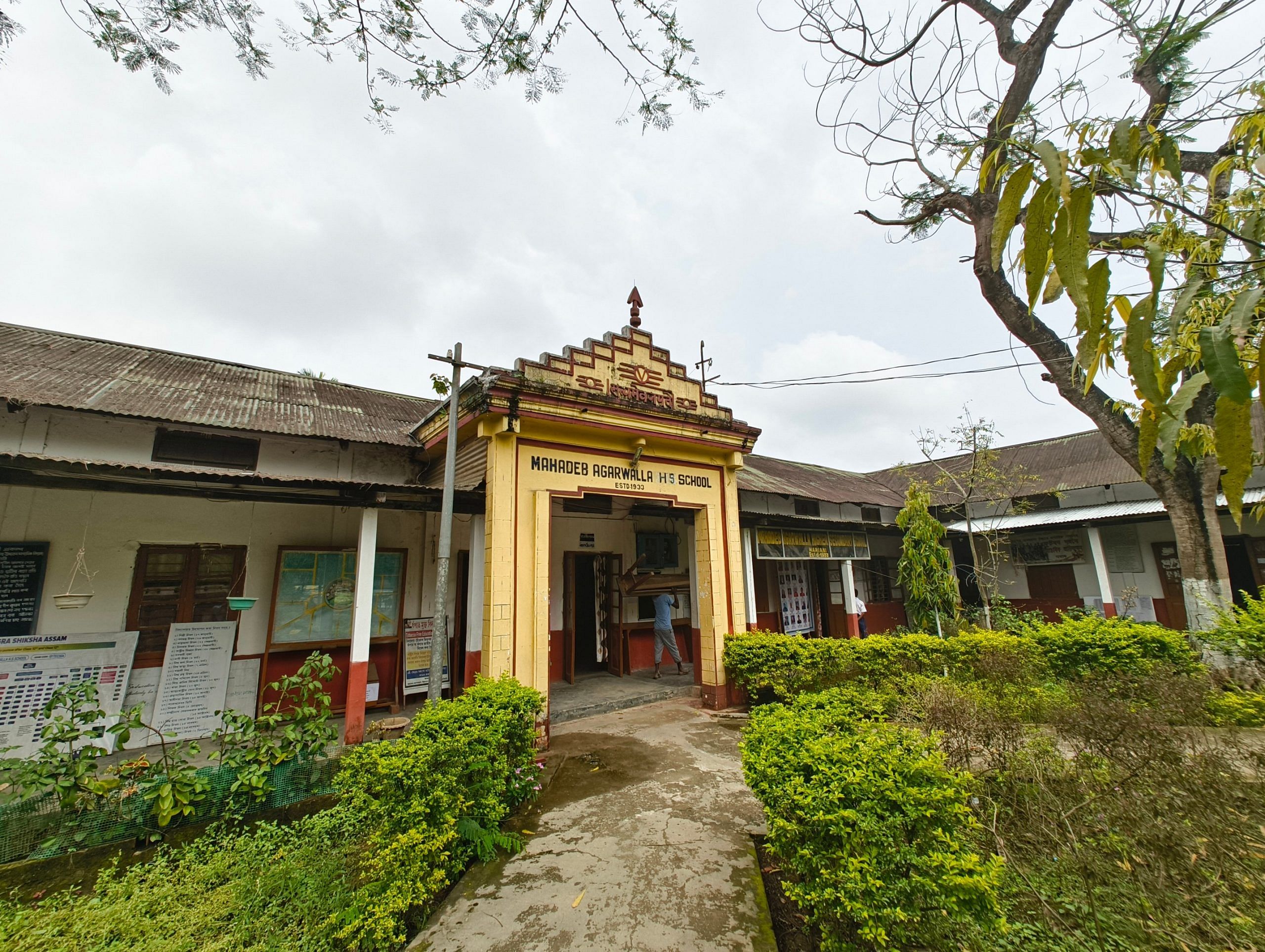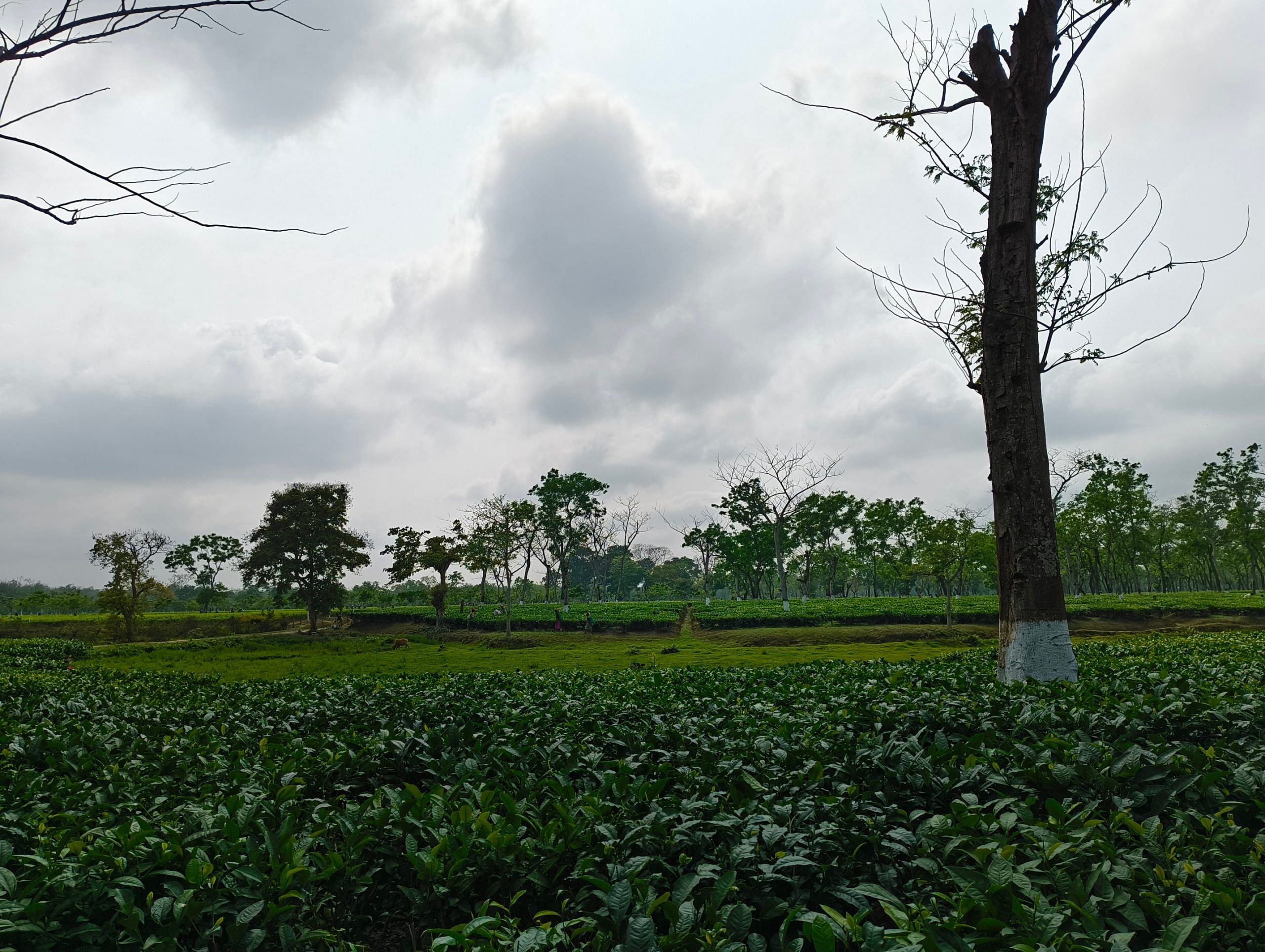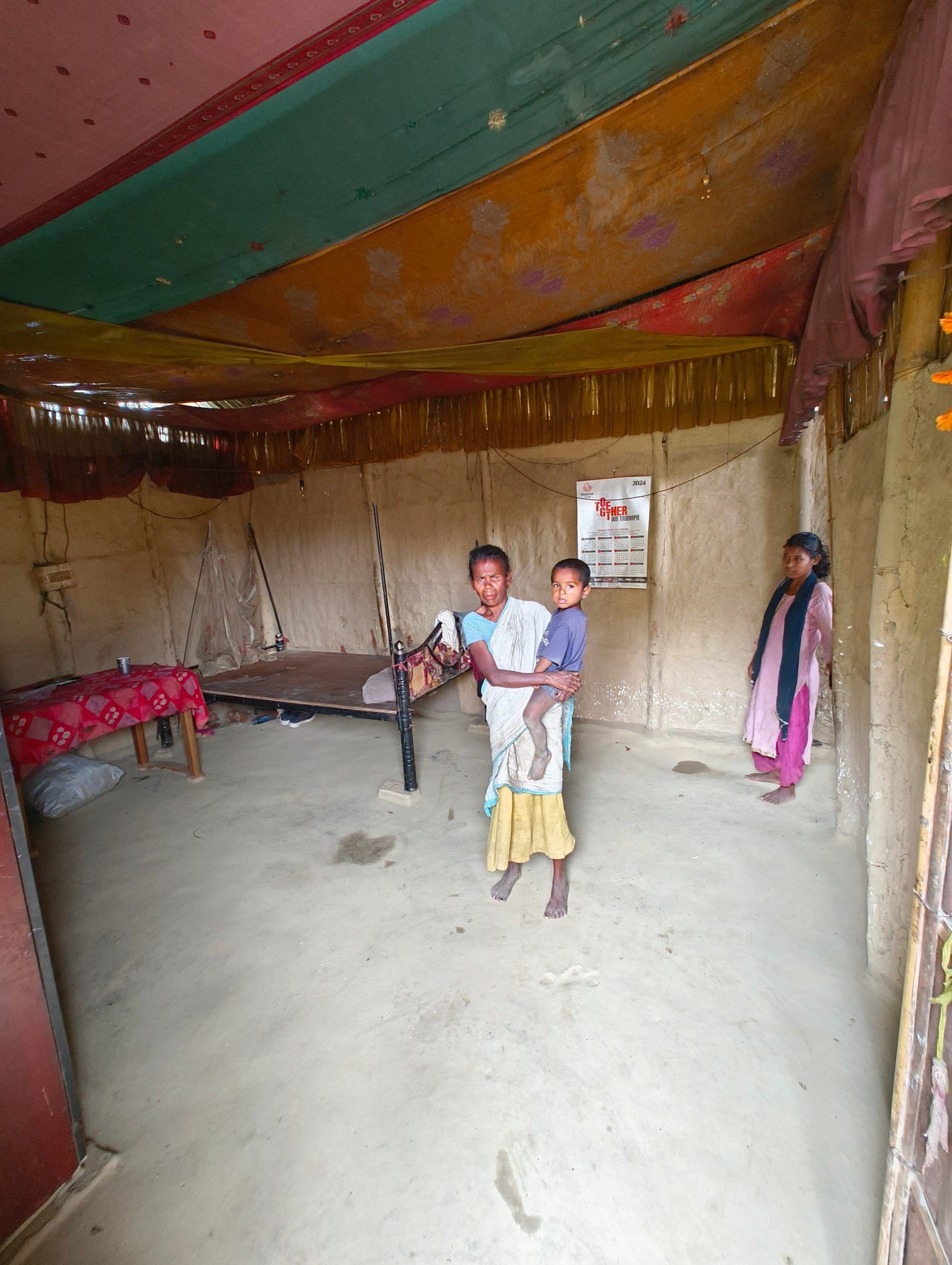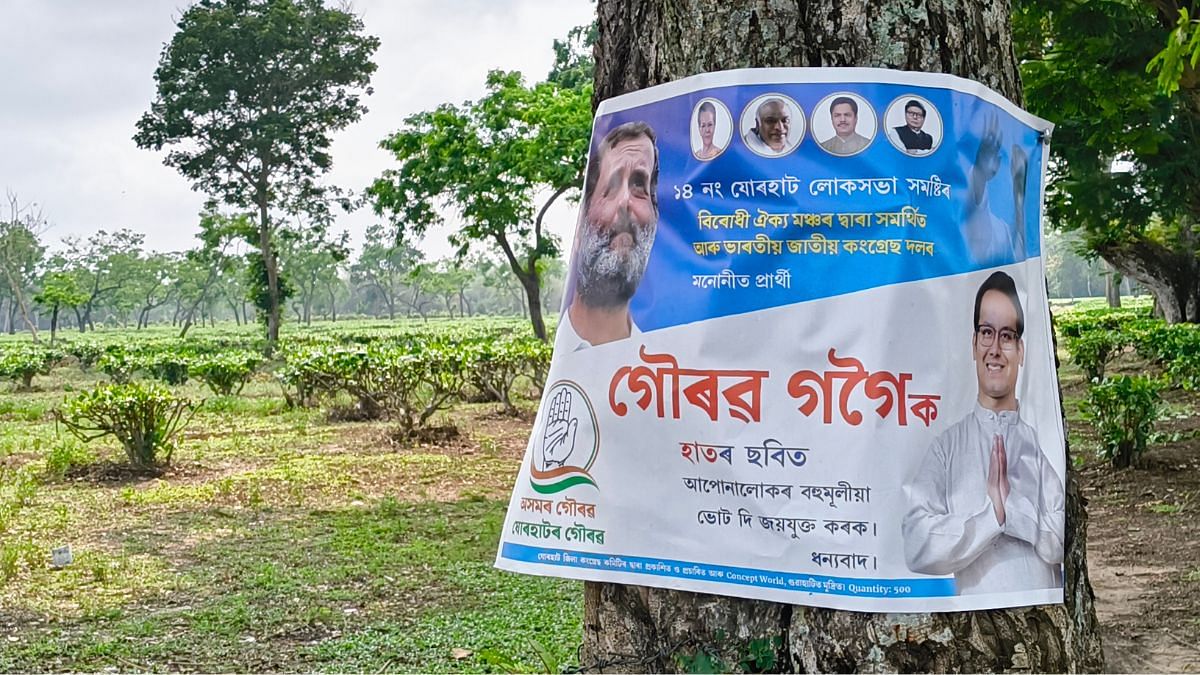With less than 24 hours to go for the first phase of the Lok Sabha election, Pritom Kumar Saikia, the principal of the school in the small urban sprawl surrounded by massive tea estates, has no time to spare.
From installing CCTVs to dialling electricians, Saikia is busy fielding one request after another from the district election authority that has picked the school as a polling station for Friday, when Jorhat goes to polls.

“I am the principal but they expect me to double up as the electrician too. What to do? It is an important task after all. There is no room for slip-ups,” says Saikia, who took charge in April last year, sporting a hassled smile.
Indeed, the arrangements need to be foolproof regardless of the names on the ballot. The fact that Gaurav Gogoi happens to be among the candidates in the fray, that voters queuing up at the school tomorrow will have to pick from, is a mere coincidence.
“A happy coincidence nonetheless, because Tarun Gogoi worked as a teacher in this school in the 1950’s. That was his first job, before he moved on to law and politics. He spent a year here, drawing a salary of Rs 100 per month. It is a matter of pride for us of course,” says a teacher of the school, which was established in 1933.
In January 2018, a little over two years before he succumbed to Covid, the former CM had attended an event at his first workplace.
“Before entering into active politics, I was fortunate enough to be a part of the noble profession of a teacher in this school. After that, I worked as an advocate and a professor at Jorhat Law College, and it feels good to remember those days working as a teacher and serving the students,” he had said then.
The Congress is hoping that such abiding goodwill for his father, coupled with Gaurav Gogoi’s own performance as an outspoken parliamentarian, will lead him to victory, despite the formidable challenge from the BJP, which has fielded sitting MP Tapan Gogoi.
“But the battle isn’t really between the Congress and the BJP in Jorhat. It’s Himanta Biswa Sarma vs Gaurav Gogoi, plain and simple. The chief minister is leaving no stone unturned to defeat Gaurav, campaigning extensively personally,” says Samujjwal Nath, a college student.
Jorhat district’s ties with the Congress’s Gogois run deep. Tarun Gogoi did not just represent the Jorhat constituency in Parliament thrice, he was also the MP from the neighbouring Kaliabor seat, known as Kaziranga constituency after the last delimitation exercise.
Gaurav Gogoi himself got elected to Lok Sabha from Kaliabor twice, in 2014 and 2019, while his uncle Dip Gogoi has also won the seat once. Moreover, as CM, Tarun Gogoi won from the Titabor assembly seat, which comes under the Jorhat parliamentary segment, three consecutive times between 2001 and 2011.
However, with the BJP’s rise in Assam under current CM Sarma, the Congress’s total domination of the region appears to be a thing of the past though. Currently, of the 10 assembly segments that come under Jorhat, BJP holds five, its ally Asom Gana Parishad (AGP) and the Indian National Congress hold two each, while one seat is held by an independent MLA.
And the BJP is pulling out all the stops to use its organisational leverage, particularly among the tea tribes, who trace their roots to the plains of central India and make up a large chunk of Jorhat’s electorate, to its candidate Tapan Gogoi’s advantage.

Ahead of the 2014 Lok Sabha polls, Prime Minister Narendra Modi had promised that Assam’s tea tribes, which can influence the outcome in up to 30 of 126 assembly segments according to analysts, would be recognised as Scheduled Tribes (ST).
It has been a politically thorny issue in the state as the existing communities that enjoy ST status have fiercely opposed the proposal in the past. As a result, after coming to power, the BJP has also adopted a cautious approach on the issue so far.
Apart from ST status, low wages also continue to weigh down the region’s tea pluckers, many of whom remain outside the safety nets of the government welfare schemes that could have lifted them out of crushing poverty.
Take, for instance, Mini Mal, 55, of Baghchong Tiniali, a village located within the periphery of a tea garden off the state highway connecting Jorhat town with Titabor and Mariani.
Mal lives under a thatched roof in a two-room mud hut with her husband Srimanta Mal, who recently retired as a tea plucker. The tea pluckers earn Rs 250 per working day.
“We tried constructing a pucca building from his retirement benefit, but gave up halfway,” says a visibly emaciated Mal, standing on the doorway with her grandson.

“I voted for the lotus (BJP) on the last two occasions. This time, I am returning to the hand (Congress),” she says. A local Congress worker, however, feels that BJP holds an advantage in the tea belts as the pluckers often vote en bloc based on directions from the union leaders or managers.
Even on Wednesday, the BJP and the Congress crossed swords over the issue. The Congress alleged that the prime minister, who addressed a rally at Nalbari, which goes to polls on 7 May, skipped upper Assam due to his inability to fulfil his promises made earlier.
“In his 2016 assembly elections campaign, PM Modi had promised to increase tea garden workers’ daily wages to Rs 350. Yet, wages were increased to just Rs 250/day, that too in October 2023,” Congress general secretary (communications) Jairam Ramesh said.
He added: “The Modi Sarkar had also promised that tea garden workers (most of whom come from the Adivasi community) would be granted Scheduled Tribe status. Ten years later, the workers are still waiting. How much longer will PM Modi lie to Assam’s tea garden workers? At a time when the INC is promising Rs 400/day minimum wage to tea garden workers, what is the BJP’s vision for them?”
The bottom line, stresses Arun Barua, a trader in Jorhat town, is that Gaurav Gogoi, who is the Congress’s deputy leader in the Lok Sabha, has an appeal, “particularly among the intellectuals and city dwellers”, but the BJP can still race ahead due to its organisational might and resources.
“His performance as a parliamentarian hasn’t gone unnoticed, since most Assam MPs remain silent in the House and fatten their purses. But, the fact remains that even in 2019, the All India United Democratic Front (AIUDF) had helped him in terms of resources, and also by fielding a weak candidate in Kaliabor,” Barua says.
(Edited by Mannat Chugh)
Also Read: Mamata’s Hindu card, Modi’s jibe & a hospital — polarisation & deprivation in north Bengal battle

